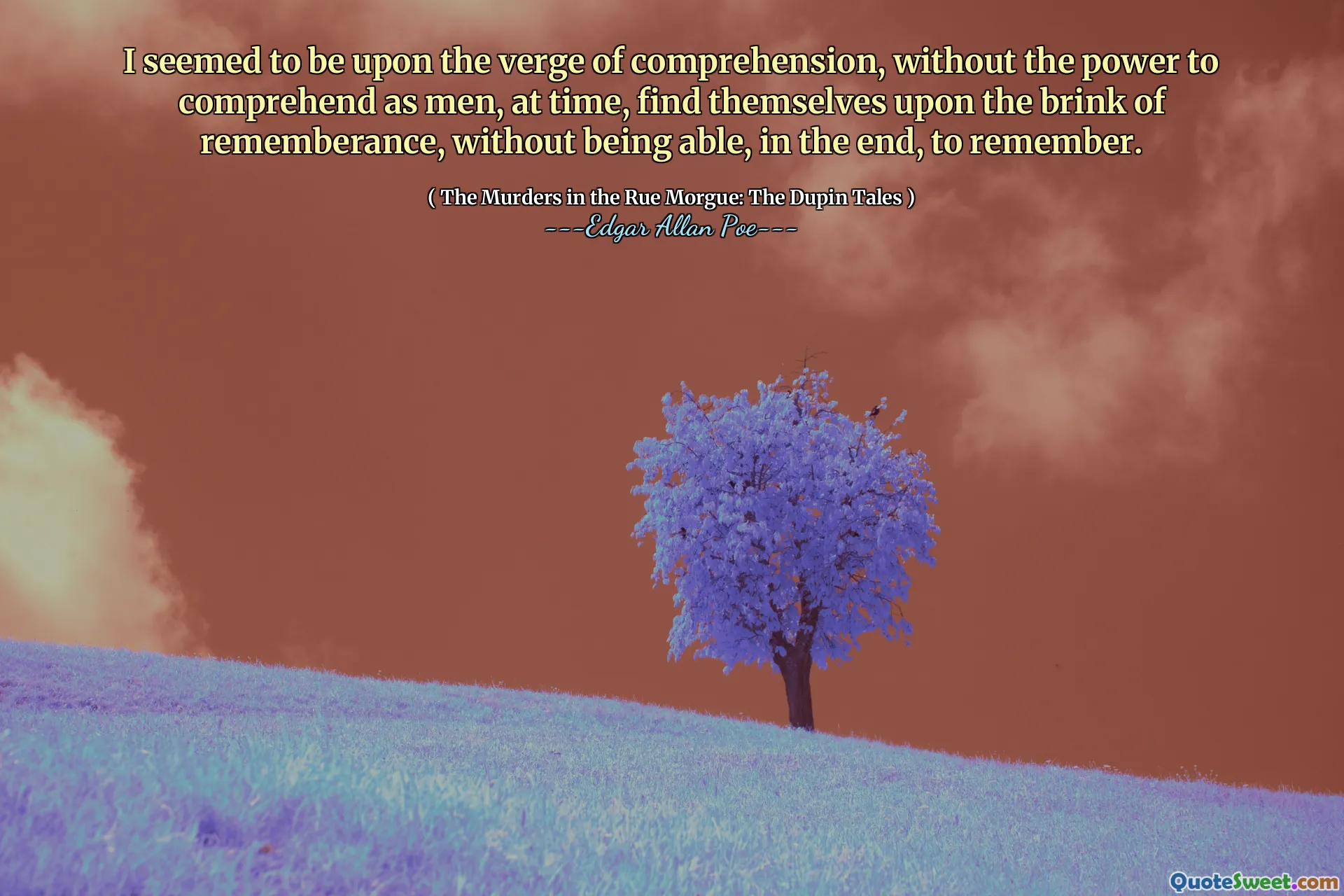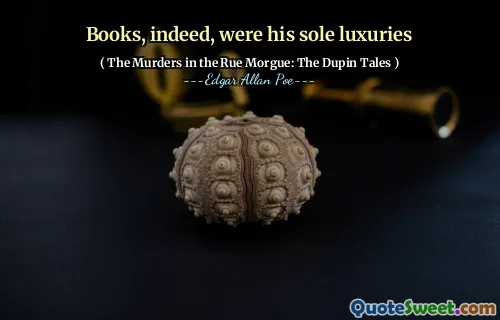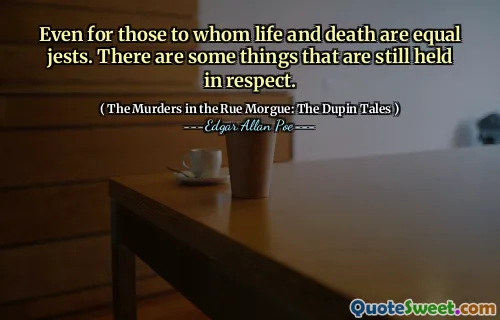
I seemed to be upon the verge of comprehension, without the power to comprehend as men, at time, find themselves upon the brink of rememberance, without being able, in the end, to remember.
In "The Murders in the Rue Morgue," Edgar Allan Poe captures a profound sense of frustration associated with the limits of human understanding. The speaker reflects on approaching a moment of clarity or realization, only to be thwarted by an inability to fully grasp what is just out of reach. This feeling is similar to those occasions when we tease the edges of forgotten memories, yearning to recall something crucial, yet finding ourselves unable to do so, leaving us in a state of contemplation and longing.
This experience illustrates a universal struggle with the mind's capacities. It suggests that comprehension often eludes us, even when we sense an impending understanding. Poe skillfully conveys this intricate relationship between thought, memory, and realization, emphasizing how close we can come to insight while still remaining in the shadows of uncertainty. This theme resonates deeply, reflecting the complexity of human cognition and the enigmatic nature of knowledge itself.








